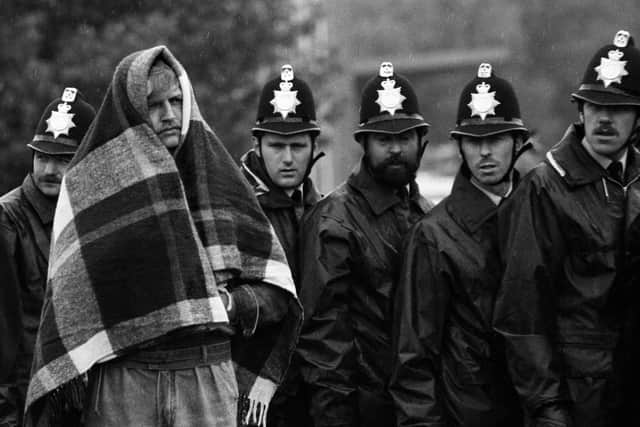MINERS’ STRIKE 40TH ANNIVERSARY: Police force involved in Battle of Orgreave calls for ‘independent assessment’ and says thousands of documents will be published
and live on Freeview channel 276
South Yorkshire Police was one of the forces at the heart of the response to the 1984-85 and the Battle of Orgreave fell within its jurdisdiction.
The coking plant at Orgreave was the site of one of the most brutal claches between pickets and police officers, on June 18, 1984.
Advertisement
Hide AdAdvertisement
Hide AdA total of 71 picketers were charged with riot, which at the time could carry a sentence of life imprisonment, and 24 with violent disorder.


Striking miners said bitterness against the police fuelled those who had witnessed trouble at Orgreave and other skirmishes around the county.
On the 40th anniversary of the strike South Yorkshire Police said too much time had passed to comment on the actions of the force at the time.
But it said it planned to release the relevant documents from the time called for an independent assessment.
Advertisement
Hide AdAdvertisement
Hide AdA spokesperson for the force said: “It would not be appropriate for the South Yorkshire Police of today to seek to explain or defend the actions of the force in 1984 as everyone involved in policing the miners strike has long since retired and the information we hold has not been properly assessed.
"We believe the appropriate process to determine exactly what occurred and why, would be an independent and objective assessment of these materials and any others available from the time.
"We have been very clear about our intent to make as much of the relevant documentation as is possible, available to the public.
"To that end, a small team, funded by the Police and Crime Commissioner, is reviewing and cataloguing all of the material held by the force and ensuring anything released is done so in line with the requirements of GDPR.
Advertisement
Hide AdAdvertisement
Hide Ad"There are 1,474 files of material which amount to 82,913 pages. When this work is complete, we will seek to follow the process undertaken by both the Home Office and the Cabinet Office, and place the documents in a recognised public archive.
"This is expected to take up to another eighteen months to two years.”
